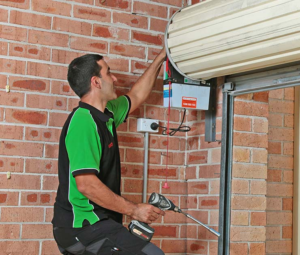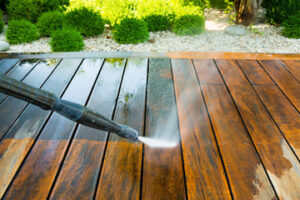Defendants’ ties to the community, stable employment, and family responsibilities can help convince the judge that they are not a flight risk. Demonstrating this can also help the defendant get a lower bail amount or even be released on their own recognizance.
Bail is designed to ensure that a defendant appears for their scheduled hearings and trial dates. It helps alleviate overcrowding in jails and allows people to continue their lives while awaiting trial. Visit https://aamericanbailbonds.com/areas-we-service/bail-bonds-cocoa-fl/ to learn more.

Bail is an amount of money or property a judge orders that the accused must hand over to a court until their trial is over. If the defendant fails to return to court, a warrant will be issued and additional charges may be filed. Bail can also be forfeited, depending on the circumstances of the case. The judge decides how much bail must be paid, and it can vary depending on the type of crime and its severity.
There are several types of bail bonds that the courts can issue: cash, percentage bonds, secured and unsecured bonds. These bonds are made up of various forms of collateral and include a guarantee from the bail agent that the accused will appear in court. Typically, these bonds are backed by mortgages and other personal assets. However, many people don’t have the money to post their own bail and are unable to get out of jail. Fortunately, there are bail bondspeople who can help.
These individuals, who are called “bail bondsmen,” work with families and friends to post the bail amount on behalf of a person who has been arrested. They will usually charge a non-refundable fee of 7% to 10% of the bond amount. In addition, they may require the accused to provide other forms of security, such as a home, car or bank account.
One of the main advantages of securing bail is that it allows accused individuals to maintain their employment and family responsibilities while awaiting trial. This can prevent job loss and financial distress, while allowing individuals to engage more fully with their legal defense team. Moreover, it can allow them to collect and present important evidence that may be crucial to their case. Ultimately, bail provides an opportunity for a fair and just criminal justice system. If you are arrested and charged with a crime, it’s best to seek legal counsel immediately. They will be able to guide you through the entire process, from bail to trial. This will ensure that you’re treated fairly. In addition, they will make sure that all of your legal obligations are met.
It’s a fee
A bail bond is a non-refundable fee paid to the bondsman to guarantee your loved one’s appearance in court. The fee is typically 10% of the total bond amount, and it can be negotiated down to as low as 5%. The fee is a regulated by the state and must be paid up-front. Many bondsmen offer payment plans, and it is important to understand the terms of these payments, including interest rates and penalties for missed payments. In addition to the bond fee, defendants may also be responsible for attorney fees and court fines.
Although a judge sets the initial bail amount in a criminal case, the court does not want your loved one to remain incarcerated while their case is pending. The court needs to be assured that the defendant will appear in court on each and every scheduled hearing date until their case is resolved, and the bail bond serves as this assurance.
Bail bonds are an excellent option for ensuring that your loved one will appear in court on their scheduled dates while they are awaiting trial. They can save you or your loved one a great deal of money, and they can also help you avoid the harsh financial penalties that may come with missing your court dates. However, it is important to note that this arrangement will also take a financial toll on your family or friends.
In addition to the bond fee, the court may impose other charges such as filing fees and administrative costs. Moreover, the court will set aside a portion of the bail to be used for victim compensation purposes. These funds provide essential support and assistance for victims of crime, and they can cover medical expenses and counseling services.
Having a loved one arrested can be very stressful and emotionally draining. It can be even more difficult if you are unable to pay their bail amount. Fortunately, you can avoid jail time by enlisting the help of a professional bail bondsman. However, it is essential to understand all the fees associated with this service, so you can make an informed decision.
It’s a loan
Bail bonds are loans that can be used to secure someone’s release from jail. They work like any other loan, but are more complex and riskier for the bail agent. Unlike a personal loan, bail bonds are not based on credit history. Instead, they are a contractual agreement between three parties: the defendant, the bail bond agent, and the court. The defendant must adhere to bail terms, including regular check-ins and restrictions on travel, in order to ensure that he or she will attend court hearings. Non-compliance can lead to re-arrest and forfeiture of collateral.
Typically, the amount of money required for bail is more than most people can afford to pay on their own. The defendant may be required to empty savings accounts or put up valuable assets as collateral. This can be very stressful for the defendant and their family, which is why they often choose to use a bail bondsman to help them out.
A bail bondsman offers financial assistance to a defendant in exchange for a fee, typically 10% of the total bail amount. The bail bondsman must also offer collateral to secure the bail bond. This collateral is a guarantee that the defendant will appear in court, or that he or she will pay back the bond agent if he or she skips bail.
Collateral is usually property, but it can be cash or other valuable items. It is important to understand what kind of collateral is acceptable before using a bail bondsman. Collateral can include real estate, such as land or buildings; vehicles, such as automobiles, trucks, and motorcycles; precious metals, such as gold and silver coins; and various types of savings and investment accounts.
When a person offers collateral for a bail bond, the bail bondsman must verify that it has monetary value. This can be done by inspecting the item and obtaining a written appraisal of its worth. The item must be insured and have a current market value to qualify as collateral.
After the case is completed, the collateral will be returned to the defendant. This may involve returning the property deed, releasing a lien on a vehicle, or remitting a check for the cash collateral. It is important to keep accurate records of all transactions and communication involving the collateral to ensure that it is returned in good condition.
It’s a guarantee
If you or a loved one has been arrested, you may need to post bail to secure your release from jail until your next court date. The court will set a monetary value for the bail, which is essentially a guarantee that you or your loved one will show up for all required hearings. However, you may not be able to pay the full amount of the bail, and that’s where a bail bond comes in. A bail bond is an agreement between a bail agency and the defendant or indemnitor. The bail bond agency will post the bail in exchange for money or assets, known as collateral. If the defendant fails to appear, the bail bond agency will be responsible for the entire amount of the bond.
The court will consider many factors to determine whether a defendant is eligible for bail, including their criminal history and if they are considered a flight risk. The court will also look at their ties to the community, such as stable employment and family relationships. The court will also consider the nature of the offense and the severity of the charges.
Most people who are arrested do not have the financial resources to post their own bail. They can hire a professional bail bondsman to pay the full amount of their bond for them. In return, the bondsman will charge a nonrefundable fee of 10% of the total bail amount. He will also require a piece of property to guarantee the remaining amount of the bond, such as a car, home, or jewelry. The bail bondsman will return the collateral if the defendant appears for all of their court appearances.
The bail process is a critical component of our country’s legal system, striving to balance public safety and the principle that all individuals are presumed innocent until proven guilty. Understanding the different aspects of this process can help demystify a typically stressful and complicated event and prepare individuals to understand their rights and options for getting out of jail as soon as possible. A skilled Abilene criminal defense lawyer can help clients navigate the process and protect their rights.


